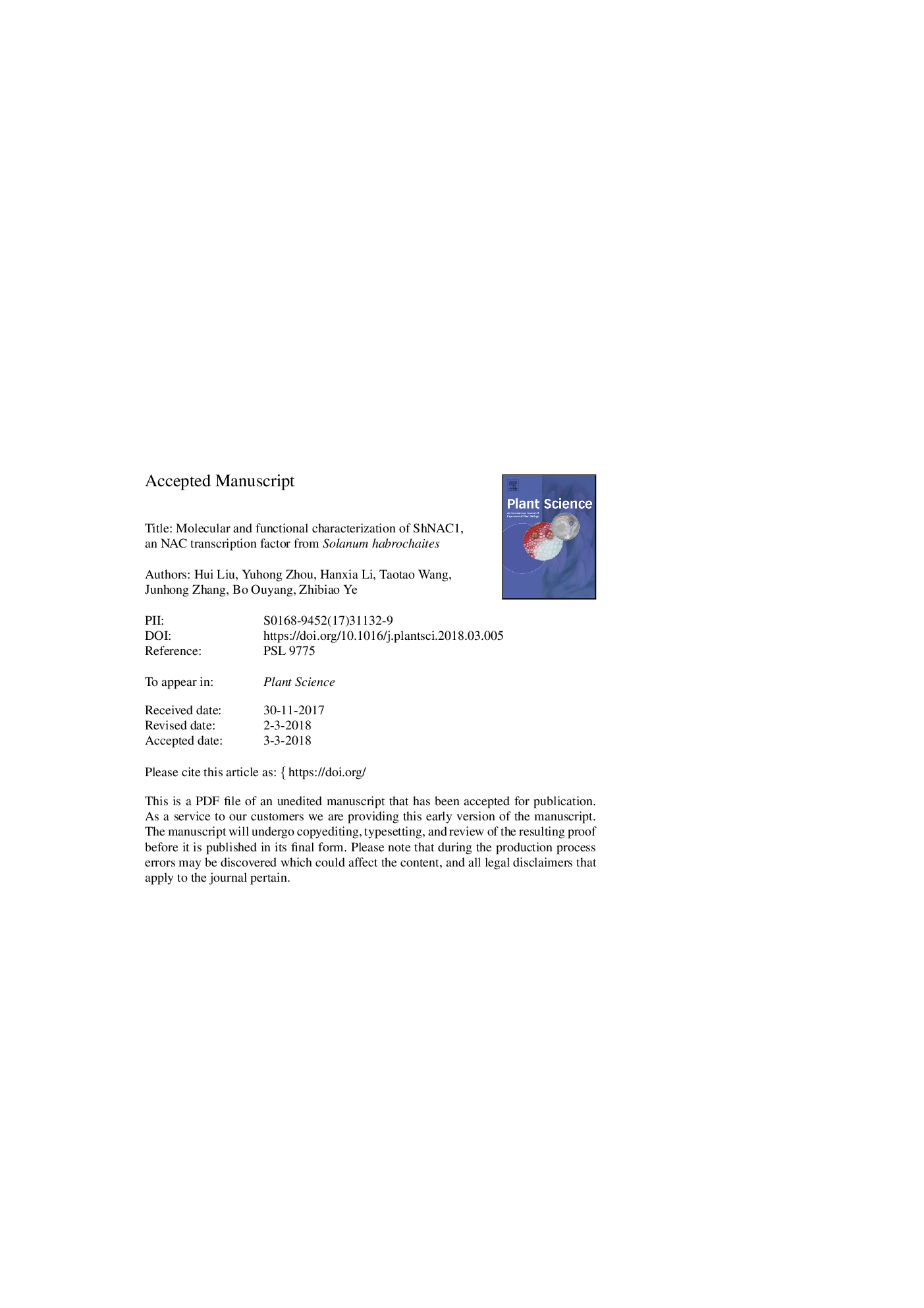| Article ID | Journal | Published Year | Pages | File Type |
|---|---|---|---|---|
| 8356478 | Plant Science | 2018 | 35 Pages |
Abstract
NAC transcription factors (TFs) are important regulators of plant adaptation to abiotic stress. In this study, we functionally characterized an NAC TF, ShNAC1, from Solanum habrochaites. ShNAC1 was up-regulated by drought, cold, and salt stresses, and it displayed lower expression at the late stage of stress treatments than its orthologous gene in S. lycopersicum. Overexpression of ShNAC1 in tomato resulted in reduced cold, drought, and salt tolerance. Additionally, ShNAC1 displayed the highest expression in senescent leaf, and overexpressing ShNAC1 accelerated salt- and dark-induced leaf senescence. ShNAC1 was located in the nucleus without transactivation activity. RNA-seq analysis revealed that 81% (190 out of 234) differentially-expressed genes (DEGs) showed down-regulation in the transgenic line L2 compared with wild-type, suggesting that ShNAC1 may function as a transcriptional repressor. Among these down-regulated DEGs, many were involved in stress responses, such as SlHKT1;1, SlMAPKKK59, SlJA2, SlTIL, SlALDH2B1, etc. Noticeably, one ACS gene and three ACO genes involved in ethylene biosynthesis were up-regulated, while seven ERF genes in the ethylene signal transduction pathway were down-regulated in the transgenic lines, respectively. Our results suggested that ShNAC1 negatively regulates tolerance to abiotic stress in tomato probably by modulating the ethylene biosynthesis and signal transduction pathways.
Keywords
Related Topics
Life Sciences
Agricultural and Biological Sciences
Plant Science
Authors
Hui Liu, Yuhong Zhou, Hanxia Li, Taotao Wang, Junhong Zhang, Bo Ouyang, Zhibiao Ye,
